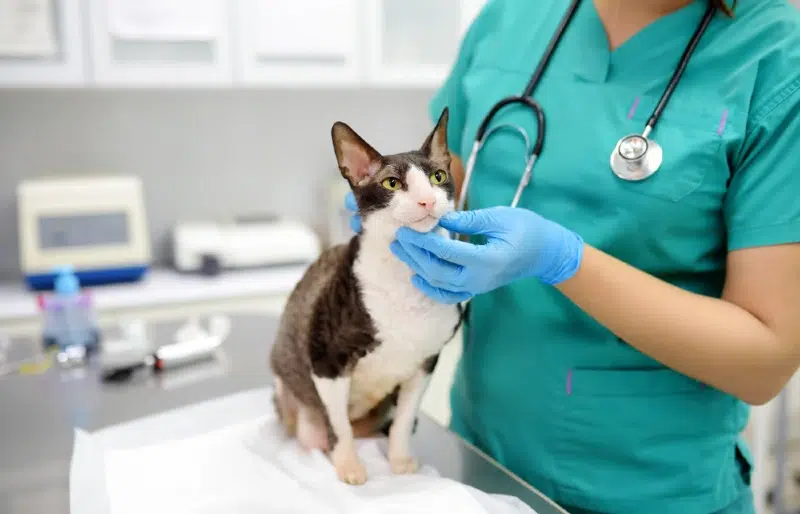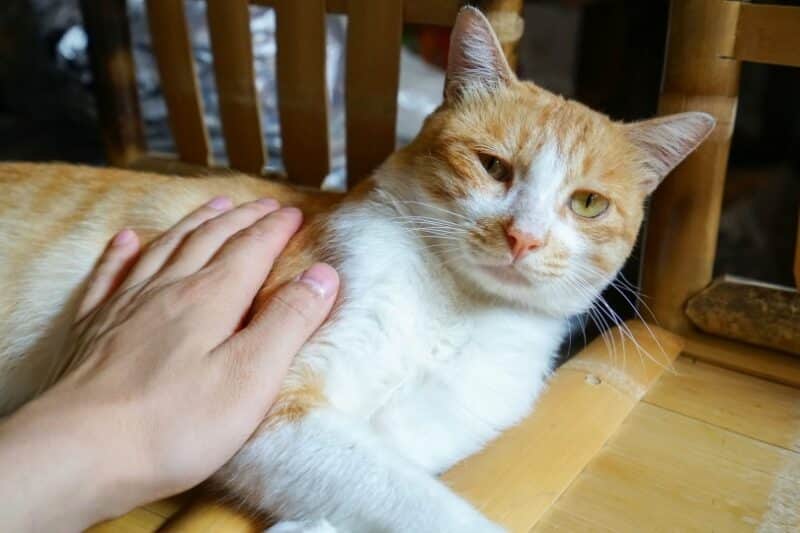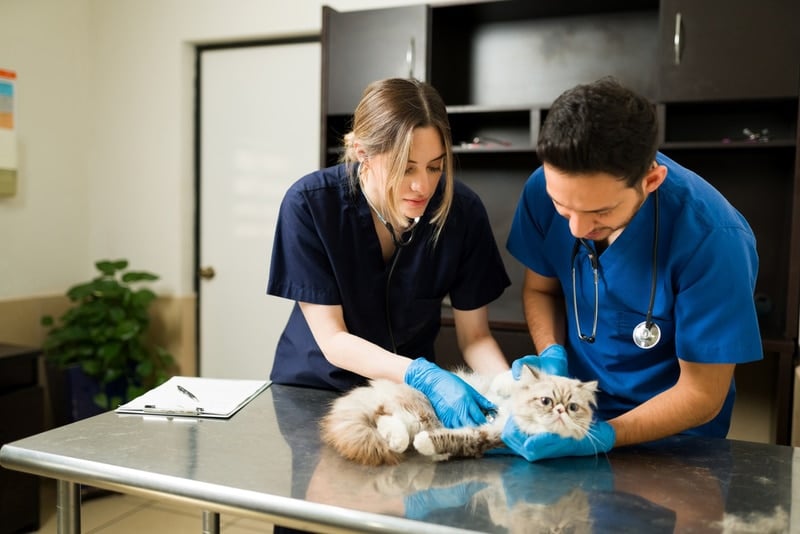Euthanasia is one of the most heartbreaking decisions any pet owner has to make. As hard as it is, realizing that illness has irreparably compromised your pet’s quality of life and choosing to end her suffering is often a humane decision, especially when she has all but stopped eating and is in constant pain.
Euthanasia was the only option for my childhood cat, Sweets. When he was 17 years old, he developed a tennis-ball-sized tumor on his side. Fortunately my parents had enough money for treatment, so they took him to the vet to have it removed.

For a few months, at least, Sweets seemed to be on the mend. But the tumor grew back bigger and meaner than before. It was clear — to me, at least — that my cat was suffering more than he was living. His next trip to the vet was his last — he died in my arms, snuggled against my chest.
But what if Sweets had been suffering from a curable illness? What if antibiotics or a simple operation had been all that was necessary to restore his quality of life and give me more time with him — and what if my family had been unable to afford that care?

With emergency veterinary care often running as high as several thousand dollars, many pet owners are faced with this haunting question when their pet falls suddenly ill. Particularly during a recession, when many individuals are unemployed or otherwise financially strapped.
So when a cat or dog gets sick and their humans cannot afford treatment, sometimes euthanasia is the only viable option.
Fortunately, San Francisco Aid for Animals is working to change that. Founded in 2012 in conjunction with the San Francisco Veterinary Medical Association, the nonprofit organization aims to provide financial assistance to individuals who cannot afford lifesaving emergency veterinary care for their pets.
“It’s something I’d been wanting to do for 20 years,” says Alan Stewart, one of the veterinarians who founded the nonprofit.
It was during a meeting of nonprofit organizations in the area that Stewart realized there was a segment of the population that was underserved: companion animals, particularly those belonging to people with limited resources to afford care. These were the individuals who had lost their jobs, experienced a death in the family, or fallen ill. When faced with a $2,500 vet bill, they often had to choose euthanasia instead of massive debt.

“For the most part, most veterinarians know when clients might be in need — if someone has just lost their job or someone has died,” Stewart says. “Or if someone has just had an emergency and they need extra help.”
After identifying this need, San Francisco Aid for Animals sought to make a difference. Using funds acquired from fundraising and individual donors, the group provides $700 grants to individual veterinarians in the area. This year, 58 vets are participating. In addition to the grant money, each vet matches the donation with in-kind services.
“Most vets have been giving away more than that,” Stewart says.
According to Stewart, the vets who receive the grants have complete autonomy to decide when to use the funds.
“It’s really aimed for people who have to make immediate, life-or-death decisions,” he says. “We didn’t want there to be a delay in that process.”
Two of the most common treatable ailments in cats are blocked urethra and bladder stones. Both of these are medical emergencies that require immediate veterinary intervention — and, depending on complications, potentially thousands of dollars in bills. But thanks to San Francisco Aid for Animals, last year 20 pet owners did not have to choose between debt and death.

The grant money certainly made a world of difference for a cat named Isis, who was suffering from a blocked urethra.
“The man had just lost his job, and his wife was also out of work,” Stewart says. “They were going to put Isis to sleep because they didn’t have the money, but the vet used their funds to save the cat.”
Because the human-animal bond does not know economic limitations, Stewart is grateful that San Francisco Aid for Animals is able to give people more time with their pets.
“I’ve been around the world and helped animals all around the world, and people who don’t have money love their animals perhaps even more dearly than the people who do have money,” Stewart says. “So it’s really great to be able to set up a foundation that can take care of that. That human-animal bond is so wonderful.”
Read about more rescue heroes on Catster:
- Pretzel the Kitten is Blind, Deformed and Inspiring People on Facebook
- Deformed Legs Can’t Hold Back Little Bear the Rescue Kitten
- Meet D’Artagnan, a Paraplegic Kitty Living Life to the Fullest
Do you know of a rescue hero ÔÇö cat, human, or group ÔÇö we should profile on Catster? Write us at catsterheroes@catster.com.
Featured Image Credit: Ground Picture, Shutterstock






